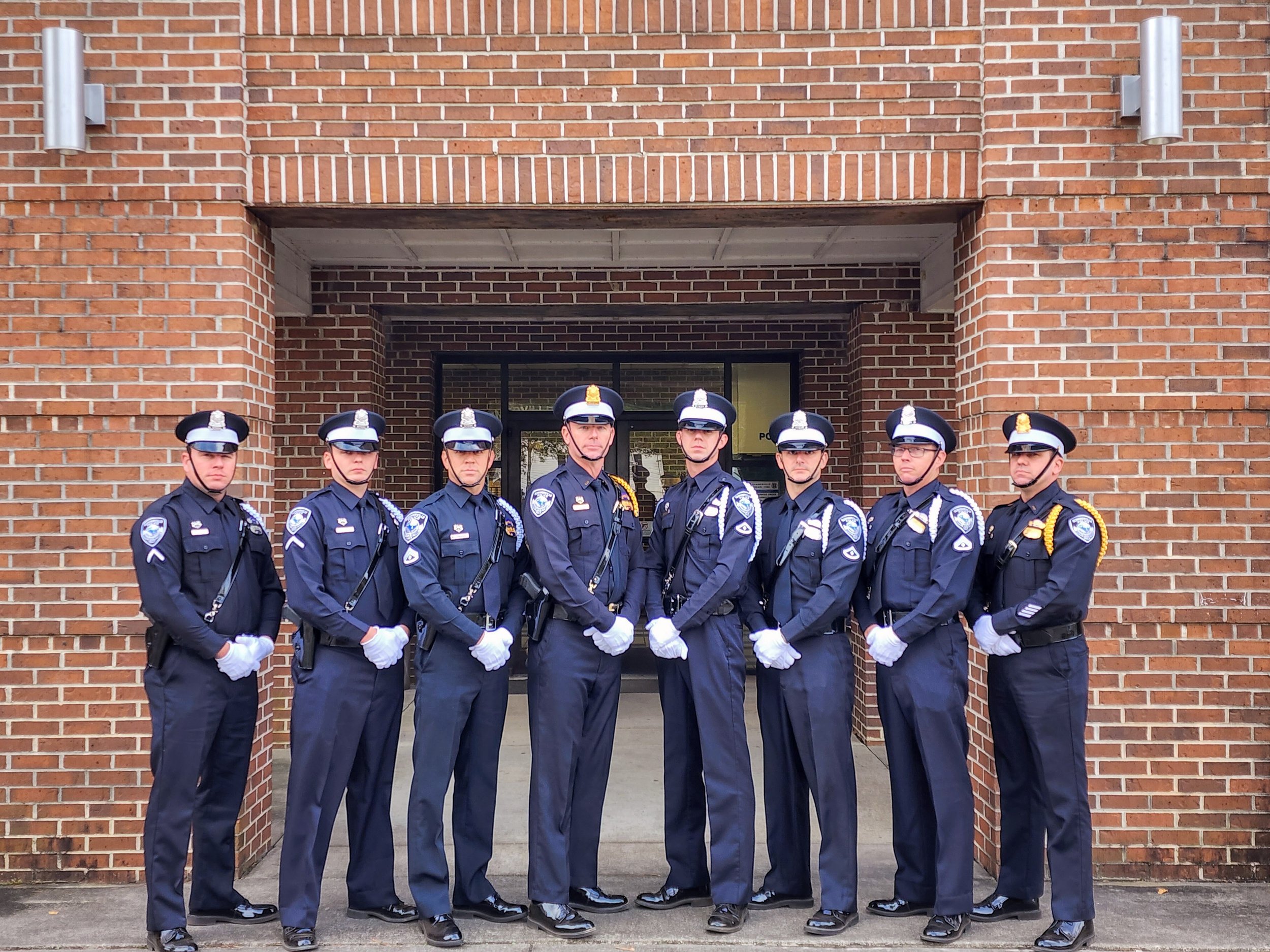
CTS specializes in pistol mounted optics agency transition classes!
〰️
CTS specializes in pistol mounted optics agency transition classes! 〰️
The demand for better training in law enforcement is at an all-time high. The public expects their heroes to be prepared to handle situations that are difficult to train for. While “check the box” training is required in many areas, we mustn’t settle for minimum requirements concerning how we prepare police officers to handle life-or-death situations. Many agencies lack enough personnel and resources to raise the bar regarding firearms and tactical training in a manner that will bring forth better performance on the street. CTS offers classes for departments that want better firearms performance from their officers and can help mitigate the struggle to develop programs internally. Our Pistol Optic Transition Course, as well as our Pistol Optic Transition Instructor Course, are certified by the South Carolina Criminal Justice Academy for hours. Reach out for more details!
Do you need to build a program for training recruits to perform well at the academy?
Do you want your instructors to run a safe and efficient range training program that will raise performance standards and help lower range costs?
Do you want to implement a proven patrol rifle program?
Do you want to train officers in the use of handguns that bring real-life application instead of just preparation for passing qualifications?
Do you need low-light firearms training?
Do you need one one-on-one training for an officer struggling to meet standards?
Are you bringing your agency up to date with pistol-mounted optics and need to plan, or have proven training for that?
CTS can do all of these and more. Whether it’s consulting for planning, training for instructors, or training officers, we will provide up-to-date training that will enhance the performance of your department, as well as officer and citizen safety.
*We offer classes approved by SCCJA for credit hours.
Contact CTS for more information here.
Pistol Optic Transition Instructor Course
This 3-day course is designed for firearms instructors to gain information on transitioning their departments from traditional sights on pistols to effectively running an optic. If transitions are not done to a certain standard, officers using optics may be more likely to be found wanting during an emergency. Improper training could bring a lag in proper response when using their firearms. That can have catastrophic results for the officer. Our course will provide them with an overall education on optics, training optics, and policy considerations, while also touching on building Instructor quality.
All attendees must be able to provide certification of being a Firearms Instructor in Law Enforcement, Military, or Security.
This certification is approved through the South Carolina Criminal Justice Academy for training hours.
April 14-16 Summerville PD (SC) Registration
Contact CTS to host this class here.
Topics Covered:
Instructor Construction
Policy Considerations
Firearm Manipulation
Finding the Dot
Red Dot Theory
Pros vs Cons
Sight Picture
Threat Focus
Parallax
Zeroing
Back-up sighting methods
Grip improvement for faster follow-up shots
Single-handed shooting
Multiple Target Engagement
Using Cover properly with Optics
Proper Range Set-up and Safety
Low Light Exercises (WML & Hand-held)
Dynamic Comparison
Attendees must bring the following:
Firearm with properly installed optic and spare magazines
Range/duty belt with quality holster and spare magazine holders (NO SERPA STYLE HOLSTERS ALLOWED)
1000 rounds of range ammunition
1 box of duty ammunition
Ear/eye protection
Firearm cleaning supplies
Inclement weather gear
Hand-held flashlight
Sun and bug protection
Pen and paper
Water and snacks
$600 per person
Host Agency gets 2 slots
Minimum of 8 slots required*
Maximum of 16 slots
Range Requirements - 25 yards (75 preferred but not necessary), 16+ lanes with target stands, dynamic training permitted, low light ability or night time shooting, classroom for first day, bathrooms.
April 14-16 Summerville PD (SC) Registration
*Class minimums can be waived under certain circumstances